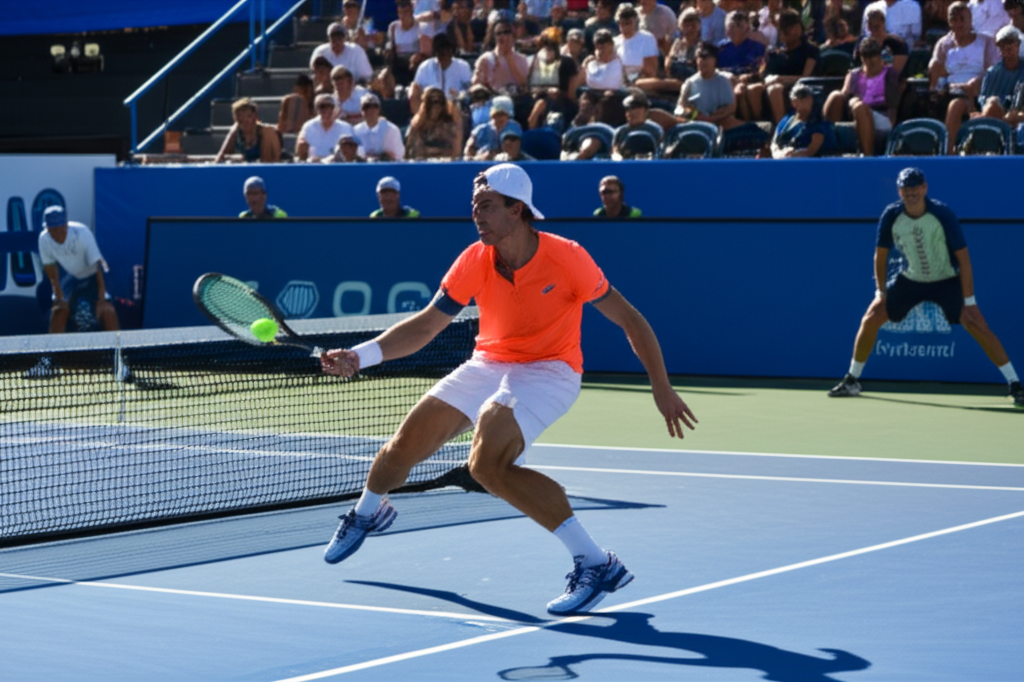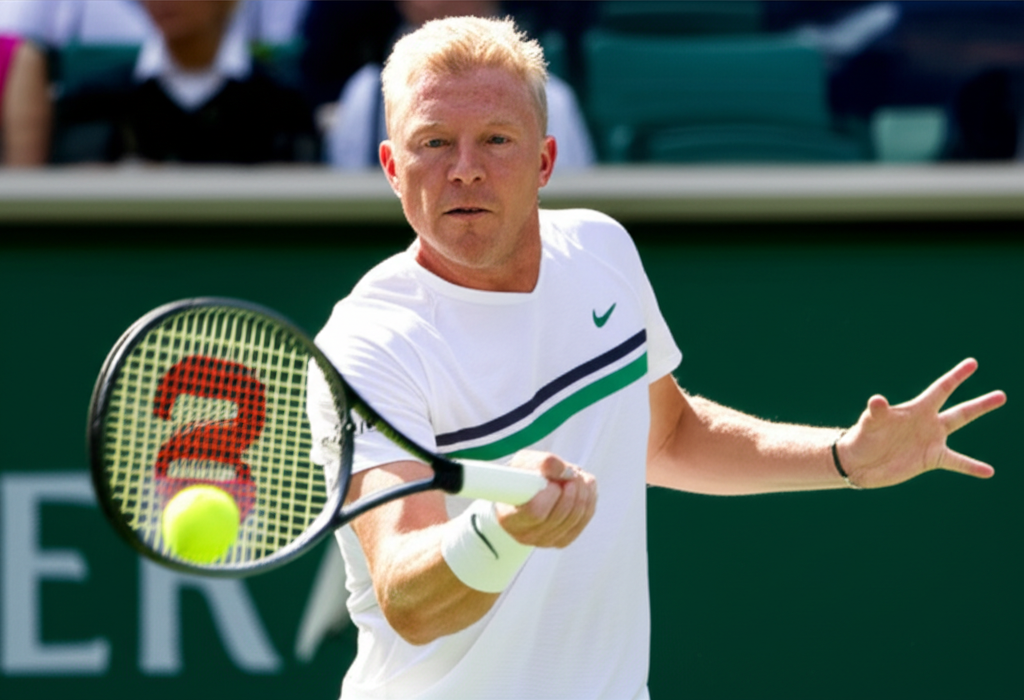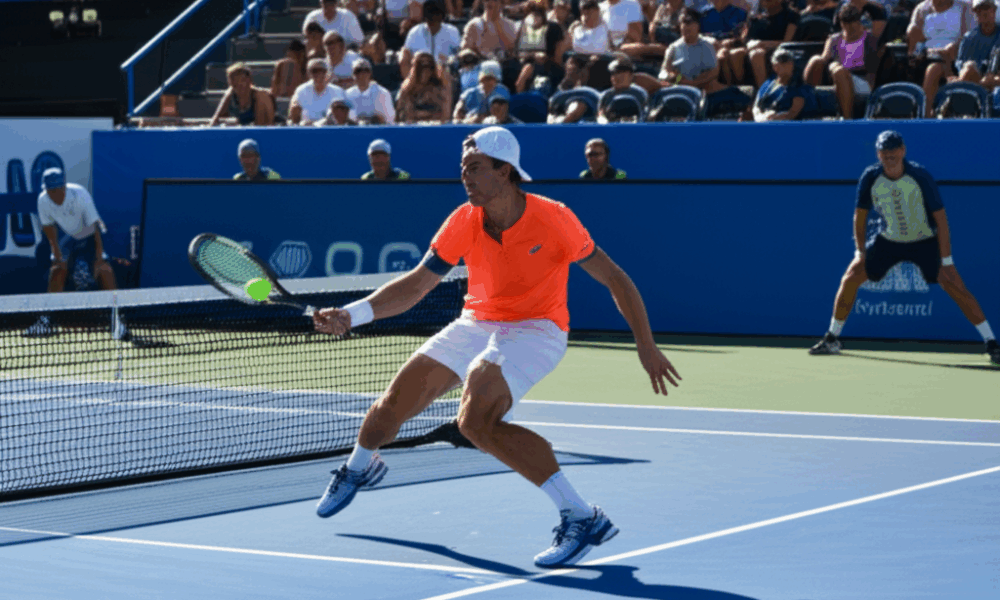Tennis legend Boris Becker has delivered a scathing critique of a significant portion of the ATP Tour, questioning the ambition and performance of players outside the sport’s current elite. Following a period where Carlos Alcaraz and Jannik Sinner have dominated Grand Slam titles, Becker, speaking on his podcast with Andrea Petkovic, posed the pointed question: “Where the hell are the rest?”
His comments come as Alcaraz and Sinner have collectively secured the last eight Grand Slam titles, marking a clear duopoly at the pinnacle of men’s tennis. This dominance has led Becker to express concern about the complacency he perceives among other top players.

The Reign of Alcaraz and Sinner: A Widening Gap
Carlos Alcaraz and Jannik Sinner have emerged as the undisputed leaders in men’s tennis, creating a significant gap between themselves and their peers. The two young stars have not only shared the last eight Grand Slam trophies but have also contested multiple major finals against each other this season alone. Alcaraz, for instance, secured his second US Open title, bringing his Grand Slam tally to six, matching Becker’s own record of six major titles before the age of 23.
Becker noted the “incredible statistic” of their consecutive Grand Slam victories, highlighting how this era echoes his own early career successes. However, he is concerned that the rest of the tour is not stepping up to challenge this dominance, suggesting that “closing the gap is actually impossible” if players do not elevate their game.

Calling Out the Challengers: A List of Names Under Scrutiny
In his candid assessment, Becker specifically named several high-profile players who he believes are underperforming relative to their potential and the top two. The list includes Alexander Zverev, Jack Draper, Taylor Fritz, Alex de Minaur, Casper Ruud, Holger Rune, Daniil Medvedev, Andrey Rublev, and Karen Khachanov.
Becker expressed his frustration that these players appear “content with the second or third role,” suggesting that for some, “quarter-finals are okay, semi-finals are okay.” He firmly stated, “No, it’s not okay if you want to become the best tennis player in the world.” He believes that these players too readily accept that Alcaraz and Sinner are superior, rather than actively strategizing to overcome them.
The Djokovic Factor and the Future Landscape
Even 24-time Major winner Novak Djokovic, at 38, acknowledges the current supremacy of Alcaraz and Sinner, having stated, “These two players are the best in the world right now” after losing to Alcaraz in a recent semi-final. While Djokovic has consistently reached Grand Slam semi-finals this year and remains a formidable force, his three losses on the biggest stages have all come against either Alcaraz or Sinner.
Becker also pointed to a stark head-to-head statistic: Djokovic’s 11-0 record against Taylor Fritz, questioning the competitive gap between Djokovic and other top players in this context. He predicts that once Djokovic eventually retires, the disparity between Alcaraz and Sinner and the rest of the top 10 will only intensify.

A Call for Strategic Evolution and Hunger
Becker’s critique isn’t just about results; it’s also about approach. He lauded Felix Auger-Aliassime’s performance against Sinner in the US Open semi-finals, noting that the Canadian “thought strategically” about how to challenge the top seed, even taking a set off him. This contrasted with Becker’s disappointment in Sinner’s US Open final performance against Alcaraz, where he felt Sinner was “predictable” and “stood still with his game,” allowing Alcaraz to exploit weaknesses in his serve.
The German legend believes that other players must adopt a similar strategic mindset and display greater “hunger” if they aspire to challenge the dominance of Alcaraz and Sinner. His comments serve as a blunt wake-up call, urging the ATP Tour’s chasing pack to re-evaluate their ambitions and tactics in the face of a rapidly evolving top tier. While tennis is experiencing a “boom” in interest, even without the consistent presence of the “Big 3,” Becker’s focus remains on the competitive drive needed at the very top.








No Comment! Be the first one.